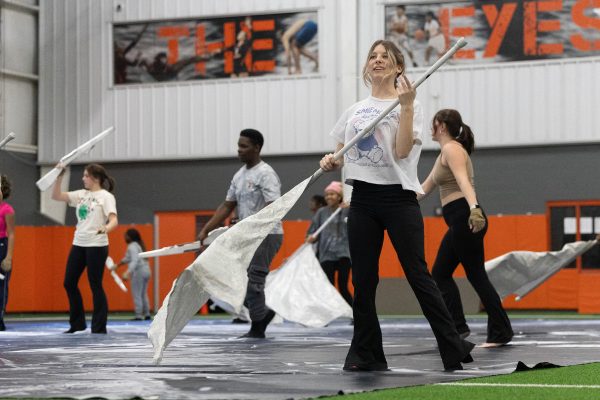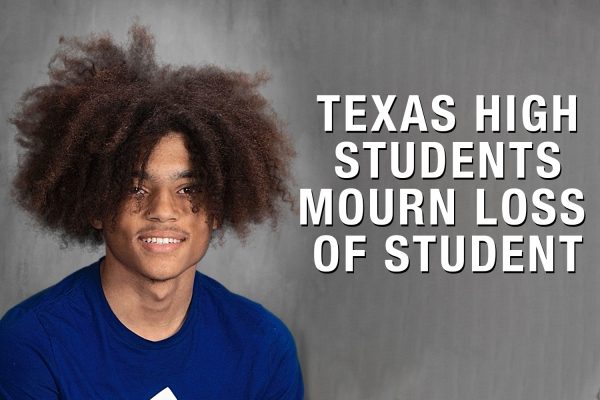InstaBully
Tea accounts sweep students’ Instagram feeds
This year has seen a rise in gossip accounts on the social media platform Instagram.
October 20, 2020
A click. A share. A message. A follow.
As smartphones get smarter and the internet becomes more accessible, technological innovation has made harassment go virtual. This year has seen a rise in gossip accounts on the social media platform Instagram. These profiles, often called ‘tea accounts’ — tea being slang for gossip originating from the phrase “spill the tea” — are run by anonymous Texas High students who receive direct messages from people claiming to know a secret regarding a classmate. The account user will then post this text message confession for the world to see.
“I was followed by five or so [accounts] at pretty much the same time,” junior Dane Bullock said. “They were just popping up one after another. They will take [messages] which could be [the] truth, could be a lie, could be a rumor being spread. They say that all posts will be anonymous, but [that] does not really count for anything if somebody’s being publicly outed in that post.”
These rumors have ranged from accusations of students doing drugs to public indecency to engaging in sexual activities on campus. Regardless of each claim’s accuracy or lack thereof, Bullock believes any post shared on a tea account is a harmful one.
“It’s a horrible invasion of privacy,” Bullock said. “That’s still personal information being spread about somebody if it’s true. Even if their name is not in it, they still feel horrible knowing something they did or something that happened to them is being spread publicly on the internet. It’s even worse if it’s a rumor or a lie, because obviously, you would hate to have something [false] spread about you.”
One common theme among tea accounts is trying to falsely out students as gay. Although students like Bullock may warn against tea accounts, senior Jacob Kaminsky found humor in his situation when an account claimed his sexuality.
“[The posters said] I was gay, but it was funny ‘cause they didn’t even spell my name right,” senior Jacob Kaminsky said. “I don’t know who [would] care enough to say I was gay.”
Although Kaminsky took little offense to the post, his friends were sure to express their disliking to it.
“My friends were nice,” Kaminsky said. “They told [the poster] to take it down. My friends thought it was funny too, but at the same time, they were like, ‘It’s kind of messed up to lie about somebody.’”
Bullock also expressed his contempt for these accounts by commenting on posts.
“I would comment, ‘This is an invasion of privacy, stop exposing people’s names and stop posting lies,’” Bullock said. “Somebody’s business is their own business and nobody else’s. I think it’s good to give [the people posting] a reality check. If they’re not doing right, set them right. It’s a horrible invasion of privacy; it’s a horrible way to spread rumors. It’s basically bullying.”
This type of bullying has a specific name: cyberbullying. Although cases of cyberbullying at school are rare, administration is familiar with it and is able to take action against cyberbullies.
“If there’s news of cyberbullying, we definitely investigate it,” associate principal Richard Stahl said. “It’s always been my personal policy to do it immediately. We don’t ever wait more than two or three minutes. We get on it right away, whether it’s lunch, morning or afternoon. We don’t want it to go any further than it already has.”
Exact punishments for cyberbullying are determined on a case-by-case basis.
“It depends on the seriousness [of the case and] how much [it’s happened],” Stahl said. “We can go from ISS to DAEP to expulsion if necessary. There’s a continuum that you have to look at and see [what their punishment is]. There’s different levels.”
In order for those responsible for online harassment to receive consequences and for accounts to gain less clicks and follows, someone involved in a situation, through Instagram and beyond, will have to come forward and tell someone they trust.
“Don’t be ashamed; don’t think it’s your fault,” Stahl said. “Come forward, let us investigate. That’s what we’re here for. My number one job is to protect y’all. Second is for your happiness and third is your education, but find a teacher, an adult, a custodian, a friend. If you don’t feel comfortable coming to one of us, have a friend do it, and we’ll do everything we can to make things better.”





















